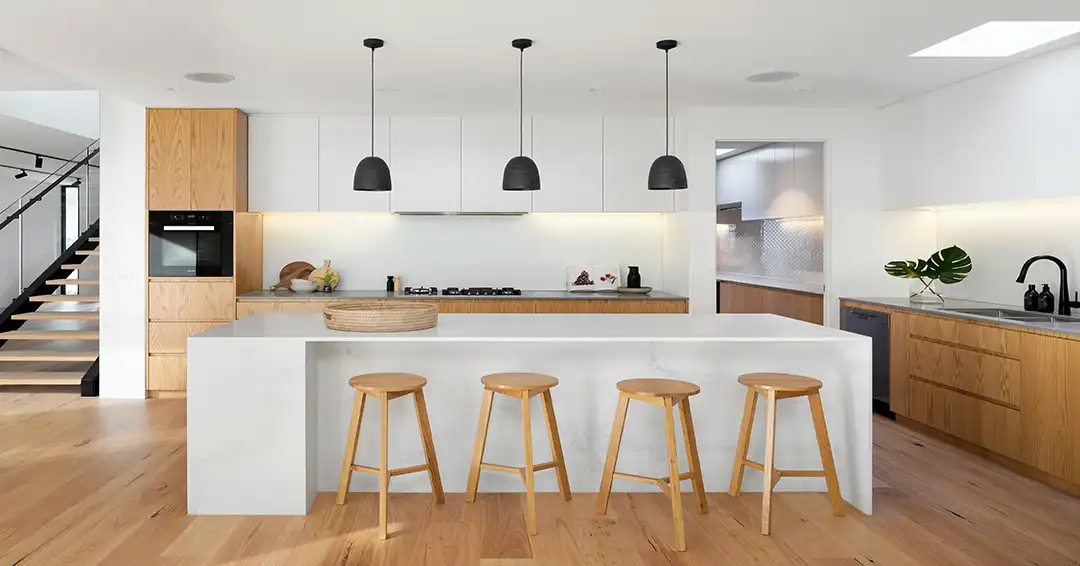Buying your first home is a monumental milestone, but the complex process can be daunting. From budgeting to navigating the real estate market in Toronto, Ontario, you’ll need to know what steps to take to make an informed decision. This guide breaks down the essential things you should know into manageable steps, ensuring you’re prepared from start to finish. Let’s dive in!
Do you often feel overwhelmed by the idea of buying your first home and wish you had a clear, straightforward guide to lead you through the process?
Key Takeaways
- Learn how to set a realistic budget for your home purchase
- Discover strategies for saving for a down payment
- Understand the various mortgage options available
- Keep up-to-date with the Toronto real estate market trends
- Explore government incentives and tax credits for first-time home buyers
Budgeting for Your First Home
Setting a realistic budget is your first and most crucial step toward owning a home. Understanding your financial limits can help prevent pitfalls, such as overspending or underestimating additional costs.

Setting a Realistic Budget
Your income should be the primary dictator of your home purchase budget. Avoid stretching beyond your financial capacity just to buy a property. Imagine the weight of an unaffordable mortgage over your shoulders—it’s a burden no one needs. A comprehensive budget will not just include the purchase price but also take into account your regular expenses—think of utilities, groceries, and transportation.
Professional financial advice can be invaluable in setting a realistic budget. Experts can help map out your income versus your expenditure, ensuring you maintain a balance. It’s not just about the house but how comfortably you can live after the purchase. So, make plans with realistic expectations and ensure you’re not house-poor.
Saving for a Down Payment
A larger down payment can be your key to more favourable mortgage rates and terms. Think about it: the more you contribute upfront, the less you’ll have to borrow, and thus lower monthly mortgage payments. In Canada, using resources like the First Home Savings Account and Retirement Savings Plan (RRSP) can offer effective ways to build this fund.
Consistency is crucial when saving for a down payment. Regular savings habits, rather than sporadic deposits, can bring you closer to your goal more seamlessly. Financial advisors can recommend saving strategies tailored to your specific needs, making the process less cumbersome. Slow and steady wins the race here—each dollar saved is a step closer to your dream home.
Understanding Additional Costs
Many first-time buyers overlook additional costs like closing fees, which can throw a wrench in your plans if not accounted for. These include legal fees and land transfer taxes. And don’t forget maintenance expenses. Owning a home means you’ll need to budget for repairs and upkeep, which adds to your monthly expenditures.
Home insurance is another necessity that you’ll need to factor into your budget. It’s essential to safeguard your new property against unforeseen events. Moreover, there could be unexpected costs like major repairs or appliance replacements. Always anticipate the unexpected—it’s better to have a financial cushion than scrambling for funds later.
Understanding Mortgage Options
Entering the mortgage world can feel like navigating a maze. But understanding your options can simplify your journey. Here’s how to make sense of it all.

Types of Mortgages Available
First, let’s talk about fixed-rate mortgages. They offer stability by locking in your interest rate over the loan term. No surprises here—your monthly payments remain constant, making it easier to budget.
Variable-rate mortgages, on the other hand, fluctuate with market conditions. While they may offer lower rates initially, there’s a risk of rates increasing. Hybrid mortgages combine features of both fixed and variable rates, giving you a blend of stability and flexibility. Consulting with professionals can help you determine which mortgage suits your needs best, ensuring you don’t bite off more than you can chew.
Mortgage Rates and Terms
Interest rates significantly affect what you pay monthly. It’s like the difference between a light sprinkle and a torrential downpour on your finances. Longer terms can make monthly payments more manageable, but you could end up paying more in interest over time. Conversely, shorter terms may save you on interest but will have higher monthly payments.
Understanding these terms is crucial. It’s not just about picking what sounds right but what aligns with your financial goals. Arm yourself with knowledge and use mortgage payment calculators to simulate different scenarios. This way, you’ll make more informed decisions.
Pre-Approval Process
Securing a pre-approval shows sellers you are a serious buyer, thereby giving you an edge in a competitive market. During pre-approval, your financial background undergoes thorough scrutiny. It’s akin to laying your financial cards on the table—nothing remains hidden.
Obtaining pre-approval can offer you a clear picture of your borrowing power, resetting your expectations and keeping your budget in check. A mortgage broker can help guide you through this process efficiently, ensuring every step is smooth. So, don’t skip this vital step; it streamlines the buying process and builds your credibility as a buyer.
Researching the Real Estate Market in Ontario
Understanding the dynamics of the Ontario real estate market can furnish you with the knowledge needed for informed buying decisions.
Housing Market Trends in Toronto
Being aware of market trends isn’t just advisable—it’s essential. Current trends dictate the pricing of residential properties, and knowing these can place you at an advantage. Seasonal fluctuations, for example, can affect housing availability. Imagining the market as a haywire stock exchange isn’t far off the mark.
Keep an eye on rising interest rates, as they can reduce your buying power. Staying updated with market news can arm you with insights to strike while the iron is hot. Forewarned is forearmed in the world of real estate.
Finding Affordable Properties
Finding affordable properties might seem like searching for a needle in a haystack. However, up-and-coming neighbourhoods often offer properties at more economical prices. Keep an eye on online listings which can turn up hidden gems. Auction houses sometimes present opportunities to buy properties below market value.
Working with an experienced real estate agent can simplify your search. They can access multiple listing services and have the acumen to identify properties that suit your needs and budget, making your hunt far less taxing.
Working with a Real Estate Agent
Real estate agents can be invaluable partners in your home-buying journey. They have access to multiple listing services (MLS) and can provide vital market insights. Their experience means they can spot a good deal and also navigate around potential pitfalls.
A good agent will also negotiate on your behalf, striving to get you the best price. Personal referrals are often the best way to find a reliable agent—who better to trust than someone who has already walked the path you’re about to tread?
Choosing the Right Neighbourhood in Toronto
Your chosen neighbourhood will significantly impact your living experience and property value, so choose wisely.

Factors to Consider When Choosing a Neighbourhood
Proximity to work is a significant factor; long commutes aren’t anyone’s idea of fun. Local amenities like shops, parks, and schools add a layer of convenience to daily life.
Future development can influence property values positively or negatively, so having an idea of upcoming projects is beneficial. And don’t overlook community vibes; the atmosphere should resonate with your lifestyle preferences. A neighbourhood that feels like home can make all the difference.
Researching Schools and Amenities
If you have or plan to have children, good schools will be high on your priority list. They not only help in children’s development but can also boost property values. Proximity to healthcare facilities and amenities like gyms or recreational centres adds another layer of convenience.
Reliable public transportation is often a significant plus, enhancing a neighbourhood’s appeal. Research these elements thoroughly. Your neighbourhood should offer not just a home but a holistic living experience.
Safety and Community Atmosphere
Safety is paramount. Lower crime rates can elevate community safety, offering peace of mind for you and your family. Community centres often foster a strong neighbourhood spirit, creating a close-knit community vibe.
Resident reviews provide invaluable insights into the atmosphere. Additionally, police records and statistics can verify safety levels, making sure you know what you’re stepping into. A safe, welcoming atmosphere makes a house truly feel like a home.
Exploring First-Time Home Buyer Incentives in Canada
Canada offers several incentives aimed at making the home-buying process easier for first-timers. Knowing about them can save you thousands and make your dream more attainable.

Government Programs and Incentives
The First-Time Home Buyer Incentive programme is a game-changer. It shares the cost of buying a new home, making it more affordable. Provincial grants and programmes can also offer additional financial relief. The Land Transfer Tax rebate is another plum; it can potentially save you thousands.
Eligibility requirements must be met to benefit from these programmes. Knowing these ins and outs can make a substantial difference, so be thorough in your research.
Tax Credits for First-Time Home Buyers
The Home Buyers’ Plan (HBP) allows RRSP withdrawals for a down payment, offering significant financial flexibility. There’s also the First-Time Home Buyers’ Tax Credit, which provides a useful rebate, helping offset some of your initial costs.
Consulting a tax professional can ensure you utilise all available credits and benefits, putting you in a stronger financial position. Maximising these incentives can ease the home-buying burden.
Eligibility Criteria and Application Process
Meeting all criteria is essential to qualify for these incentives. The application process involves detailed documentation—it’s akin to assembling a complex puzzle. A professional can help ensure you meet all requirements and aid in submitting applications accurately, avoiding unnecessary delays.
Understanding every nook and cranny of the application process can streamline your path, making the financial aspects much more manageable.
Working with Real Estate Agents and Professionals
Choosing experienced professionals can alleviate many stresses, ensuring a smoother home-buying journey.

Finding a Reliable Real Estate Agent
Referrals from friends and family can point you toward trustworthy agents. An experienced agent knows the market intricately and can provide a wealth of invaluable insights.
Conduct interviews to gauge an agent’s suitability. Credentials matter—check them to ensure professional standards are met. Finding the right agent can make the process significantly easier and more enjoyable.
Choosing a Real Estate Lawyer
A real estate lawyer ensures your paperwork is in order, smoothing out legal complexities. They can provide peace of mind, knowing you’re covering all legal bases.
Personal referrals often point out competent lawyers. Meet and discuss your needs to confirm compatibility. Having a reliable legal ally can make the home-buying process much more straightforward.
Home Inspection Process
Inspectors identify potential issues before you finalise your purchase, preventing future headaches. A thorough inspection is crucial—it’s like a health check-up for your home.
Schedule an inspection before closing and review reports meticulously. Ensuring no stone is left unturned can guide your final decision, safeguarding your future investment.
Navigating the Legal Process of Home Buying
Understanding the legal intricacies surrounding home buying can keep you firmly on track and prevent unforeseen setbacks.
Understanding Purchase Agreements
Purchase agreements outline the terms of your deal. Clear, unambiguous agreements with all necessary conditions (like home inspections) included guard against future disputes.
Legal advice ensures you understand all clauses, helping you avoid unexpected pitfalls. Never underestimate the power of thorough legal preparation.
Closing Costs and Legal Fees
Budgeting for closing costs is vital to prevent financial surprises. Legal fees encompass the transfer of property title and various other expenses.
Detailed statements itemise every cost, ensuring transparency. Financial planning must include these costs to provide a clear picture of the complete financial commitment.
Title Transfer and Registration
Title transfer ensures legal ownership. Your real estate lawyer will handle the title registration process, ensuring all goes smoothly. Title insurance protects against unforeseen claims, securing your ownership.
Efficient registration ensures a smooth handover, completing your journey to owning your new home.
Tips for a Successful Home Buying Experience
Following these tips can greatly enhance your home-buying experience, making it more enjoyable and less stressful.

Being Patient and Flexible
The home buying process can be longer than expected. Flexibility in your requirements can open up more options, while patience prevents emotional decision-making.
Quality properties are worth waiting for, so hang tight; the right home will come your way.
Negotiating and Making Offers
Fair offers should be based on thorough market value research. Strong negotiation skills can save you significant money.
Quick, decisive offers can secure popular properties. Professional advice strengthens your negotiating position, ensuring you get the best deal possible.
Post-Purchase Homeownership Tips
Regular maintenance preserves property value. Building a community network enhances your living experience. Understanding property taxes is vital for financial planning.
Continued learning about homeownership can provide ongoing benefits, ensuring you make the most out of your investment.
Summary and Final Thoughts
Buying your first home in Ontario is a complex yet rewarding journey. From budgeting and saving for a down payment to understanding mortgage options and navigating the real estate market, each step requires careful planning and consideration. Exploring government incentives can provide additional financial relief, while working with knowledgeable professionals ensures a smoother process. Keep an eye on the neighbourhood’s amenities, schools, and safety to find the perfect place to call home.

What are your biggest concerns about buying a first home, and how do you plan to tackle them? Share your thoughts and experiences in the comments below!
—
The road to homeownership may have its bumps, but with the right knowledge and preparation, you can navigate it successfully. Happy house hunting!
Frequently Asked Questions
Who is eligible for first-time home buyer in Canada?
To be considered a first-time home buyer in Canada, you must not have owned a home within the last four years. This includes your spouse’s ownership history. You also need to be a Canadian citizen, permanent resident, or a non-permanent resident who has resided in Canada for at least the past two years.
How much do first-time home buyers have to put down in Ontario?
First-time home buyers in Ontario typically need to put down a minimum of 5% of the purchase price as a down payment. However, putting down more than the minimum can help you secure a better mortgage rate and reduce your overall borrowing costs.
What is the first-time home buyer incentive in Ontario?
The first-time home buyer incentive in Ontario is a program that allows eligible buyers to finance a portion of their home purchase through a shared equity mortgage with the government. This can help reduce the amount you need to borrow and lower your monthly mortgage payments.
How to buy a house with low income in Canada?
Buying a house with low income in Canada may be challenging, but it is possible with the right strategies. You can explore government programs, such as the First-Time Home Buyer Incentive, as well as look for homes in more affordable areas. Consider saving for a larger down payment to reduce your borrowing costs and improve your chances of approval for a mortgage. Consulting with a mortgage broker can also help you find financing options tailored to your income level.
